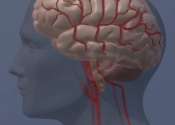New studies show moral judgments quicker, more extreme than practical ones—but also flexible
Judgments we make with a moral underpinning are made more quickly and are more extreme than those same judgments based on practical considerations, a new set of studies finds. However, the findings, which appear in the journal ...
Nov 28, 2012
1
0


